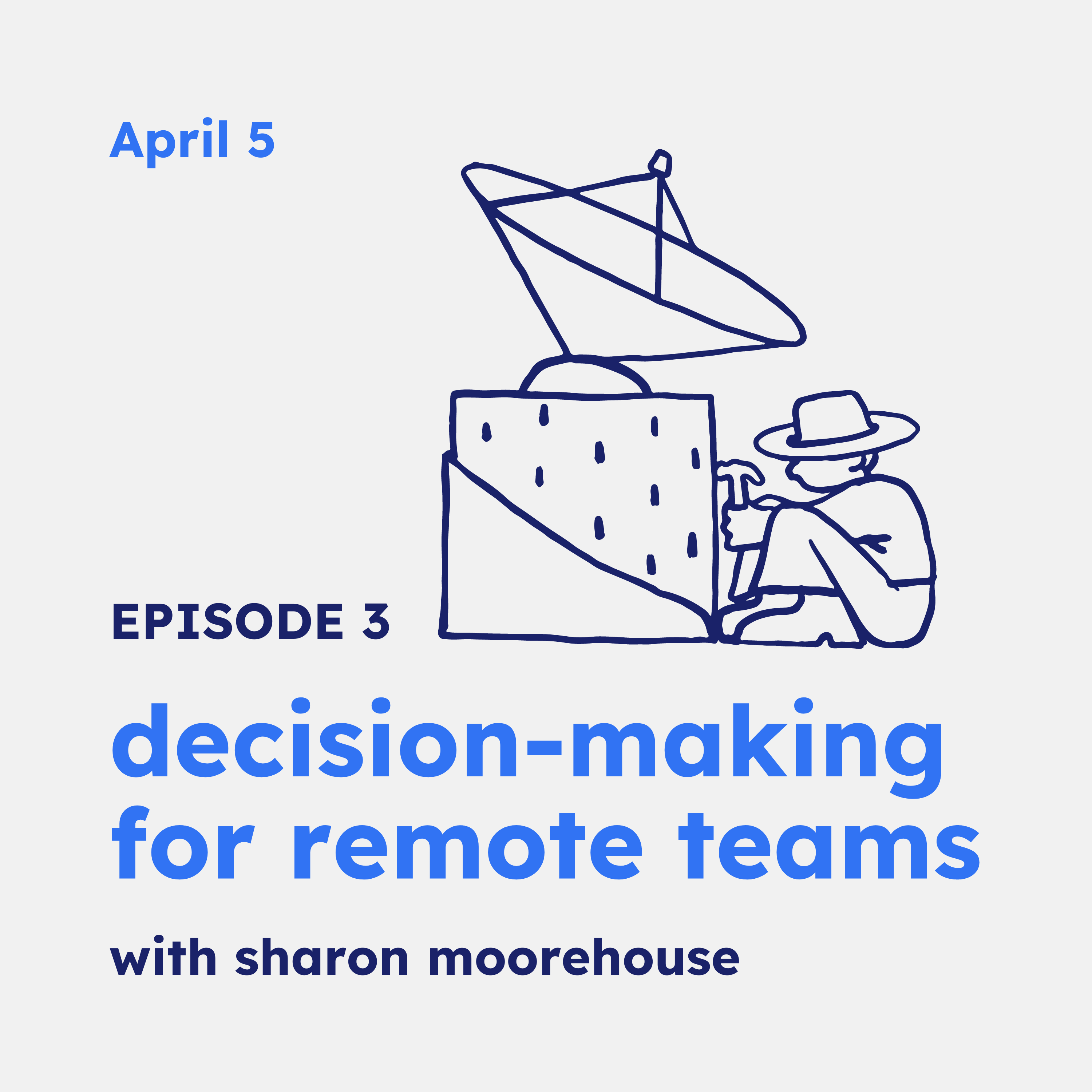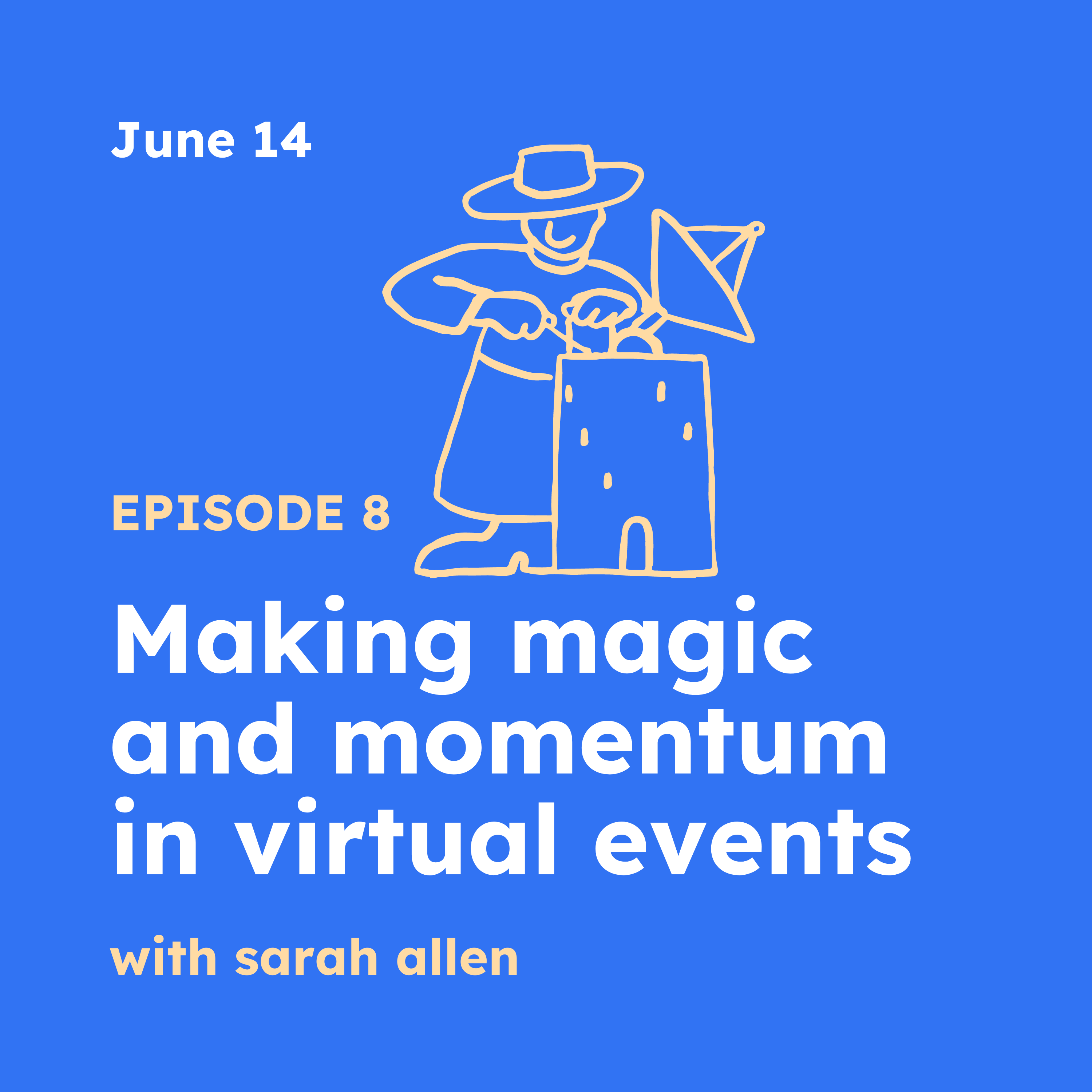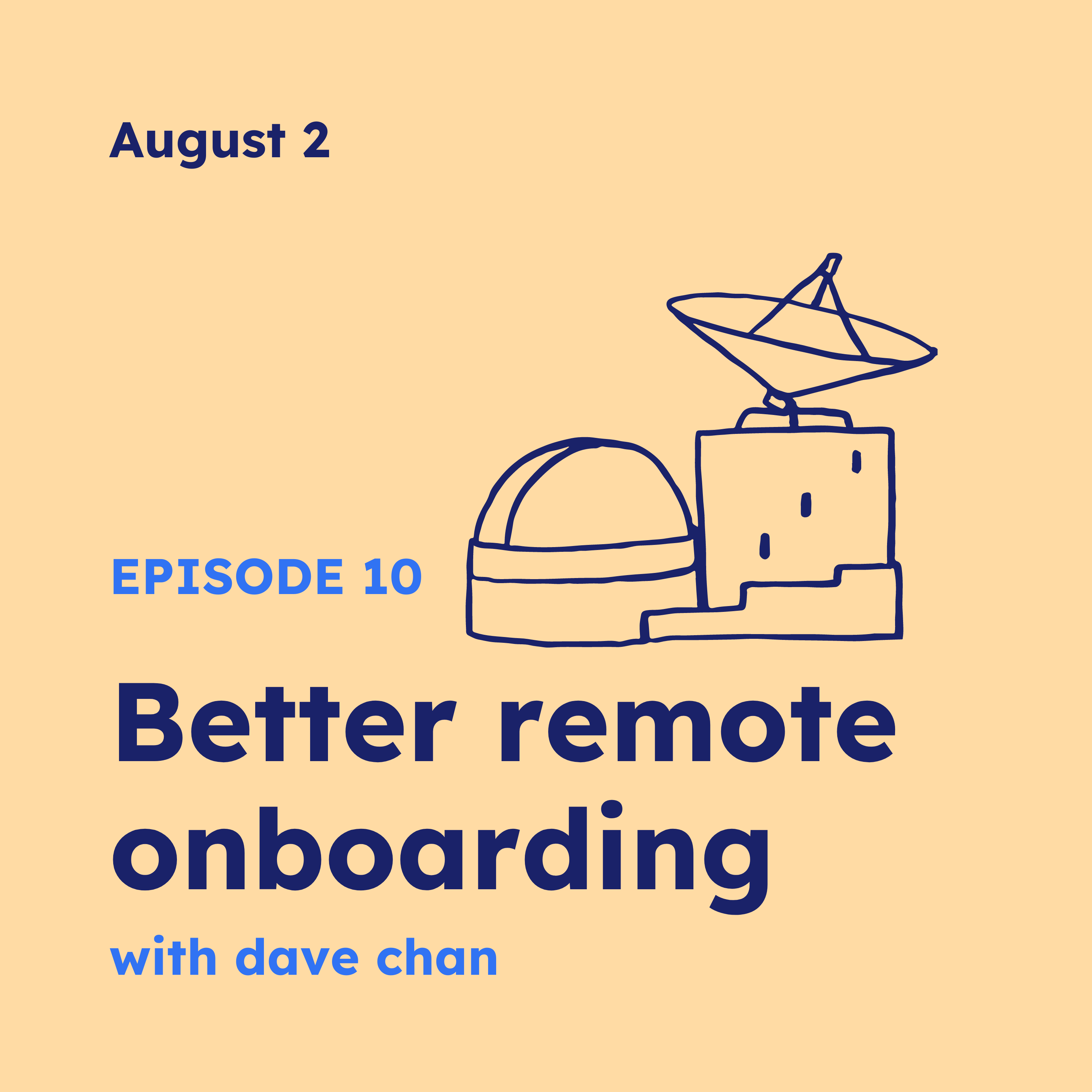Episode Transcript
Speaker 1 00:00:05 Welcome to the Remote Culture Club podcast. On this show we inspire and equip leaders to build remote culture that works. I'm your host Alex Dunn, and even though I've been leading remote organizations for over 10 years, I'm always learning more. It's really nice to have you here. And without further ado, welcome to the show.
Speaker 1 00:00:26 In this first solo episode, I wanna talk about a dynamic. I see a lot in remote teamwork that I think is the culprit behind a lot of the burnout, exhaustion, feeling that energy expended is not necessarily impact created <laugh>, and I boil it down to meeting culture. And I think I'm gonna take each of those words separately. Just explain a little bit of what I mean, and then sort of share three things to help you advance your meeting culture so that it's more aligned with turning energy of your team into something that actually is impactful with the work you're trying to do. And if we take meeting first, I think meetings get a bad wrap. But the reason that we over meet is because I think, um, of a good faith instinct when it comes to how we as humans collaborate. And I think when we're in person, the first thing that we want to do when we have an idea or a problem or a question or um, something that we want to do together is we wanna talk about it.
Speaker 1 00:01:39 We wanna see someone's face, we wanna hear their voice, we want to use our words to convey what we're thinking and explore ideas and in person. That's a lovely instinct. I think. Um, there's still some people that prefer it more than others. There's still some people who feel like they can better articulate what they think and need in live conversation than others. For sure. Meetings in person aren't perfect, but in remote they take on a whole new set of sort of shadow problems. The first is that we have to structure our time in advance to be able to chop up time for meetings. And what ends up happening is there is a wild divergence of the level of importance a particular meeting might have on our calendar, A level of urgency, a number of people. And what happens is our calendars just get so full that meetings become the primary way that we move work forward because it's the main thing we're doing all day.
Speaker 1 00:02:44 Um, and then people get sick of meeting, even though at bottom it is a really great way of advancing our work and building relationships with the people that we collaborate with. So that's the meeting part. The culture part is that habits build up around meetings and around, um, coordinating time together that can go unquestioned because they're culture, because they're habits, because they're implicit ways of working that we don't spend time reflecting on. So that can be things like, is it a cultural norm in your organization that anyone can grab any time on anyone else's calendar that they see as free immediately? You can see sort of what might happen if that is a norm, a cultural norm within your organization, or is there a cultural norm that, um, it's okay to step into conversations that are really unstructured. So no agenda or, um, a standing meeting that sits on your calendar for a long time and every time <laugh> just before it, you wonder, why is it that we have this standing meeting?
Speaker 1 00:03:51 So sort of cultural norms around that, cultural norms around it being okay for the same people to talk in those conversations. And it being okay for people to just join and listen, that's not necessarily a problem, but it is a cultural habit that can emerge in remote organizations in a way that it wouldn't, I don't think in person because it would be socially normal <laugh> to have two people talking the whole time and everyone else listening. Whereas in remote, it's easy for some people to be more passive in conversation to just kind of take it in. So that's sort of the meeting piece is this idea that we like to see each other's faces and talk through things. And the culture piece is in organizations we build up habits and practices that we don't necessarily think that much about, but it defines how our work week goes.
Speaker 1 00:04:36 And when you combine those two things, you get meeting culture and uh, meeting culture is sort of the, the way and that your organization uses meetings as one tool in its toolkit to move work forward. And meeting culture can get really bad in organizations. Um, meeting culture can look like calendars that are wildly full. Everyone's late to everything because they're meeting back to back to back to back action points don't come out of conversations, which means you end up having the same conversations over and over again. People are meeting outside of normal working hours across time zones because there's just not enough blank time on their calendar to fit it all in all kinds of things can crop up in there. Resentment about boundaries, inefficient use of time, um, exclusion of people from key conversations. Lack of attention to things like decision making, all kinds of really horrible things.
Speaker 1 00:05:31 <laugh>. Conversely, positive meeting culture, strong meeting culture is when we use meetings appropriately. Our calendars have the spaciousness to be able to adapt when things come up or find the space to do the deep thinking and deep work, we need to actually engage meaningfully with the work that we're doing. So to move your meeting culture from maybe that first vision of not so nice, um, into something more like the second vision I described, there's three things I want you to think about. The first is probably already pretty obvious from what I just said, stopping meeting by default. So in a remote setting, you have to be mindful that meeting by default is a culture killer. <laugh>, if you have to meet to move work forward, that's going to lead to really terrible things. And part of that is recognizing and maybe discussing what situations should lead to a meeting and what situations need to be able to be resolved without live session time.
Speaker 1 00:06:38 So that's the first step is stop meeting by default, which takes time to sort of wrap your head around. But if you can fix that issue, a lot of other issues will solve themselves. The second is finding your team's rhythm. So I think that when teams work across time zones or when they work across individual contributions on projects and larger organizational work and vision, what ends up happening is everyone, every individual has their solo rhythms. So maybe when it's breakfast for you, it's lunch for everyone else. Maybe when it's the end of a project for everyone else and they're celebrating, maybe it's the beginning of a project for you and you're trying to sort out what the next few months is gonna look like and that sense of solo rhythm can be really disorienting. And meetings, um, can be used to try and create rhythms that are shared.
Speaker 1 00:07:33 And I think actually that's a really great way to use meetings. So for example, rather than waiting until there's a lot of ideas bubbling up about an ongoing project, what if you had a monthly check-in on that project or all of your projects, um, to reflect on how they're going and what's coming up from them. And that's just one example, but choosing a cadence and an appropriate kind of meeting to create a rhythm for your team so that essentially rather than wait until a lot of issues are coming up, you kind of build a rhythm that people can lean into. And it requires fewer ad hoc meetings because your rhythms create opportunities for people to have the key conversations they need to have when they need to have them kind of move work forward. So that to me is a another sort of step. So it's stop meeting by default and then find your team's rhythm using appropriately cadenced meetings as a way of coming together for those key conversations and creating a sense that there is this shared rhythm and it's not just a bunch of individuals, um, sort of randomly doing work at different levels of intensity at different times and sort of feeling on a different page most of the time.
Speaker 1 00:08:46 And then the third way to sort of think about changing your meeting culture, and this might sound obvious, but when you need to meet, to meet really effectively <laugh>, I think one of the downsides of remote meeting is that because we have so many of them, the really important ones oftentimes are just as unprepared as the ones that didn't matter at all. And I think the clarity and space you get from not meeting by default opens up opportunity to create really considered structures for conversations that are important. So doing things like assigning a facilitator, doing things like obviously setting an agenda that has clear objectives that you're trying to reach, that are realistic and actually achievable in the time that you've set aside, um, following up from that meeting to make sure that what came out of it is actually agreed upon and that you're able to build traction from that conversation and not just sort of end up in the same meeting two weeks later to remind people what you discussed.
Speaker 1 00:09:43 So just to repeat, I'd encourage you to kind of think about what your meeting culture is and how you might describe it. And if you are finding yourself recognizing that is problematic and you wanna improve your meeting culture, one stop meeting by default. Two, consider and try and intentionally design your team rhythms so that people can lean into that to find meaning more regularly. And then three, when you do need to meet, meet really, really effectively. So hopefully that's helpful in sort of getting you thinking about the role meetings play in your remote team culture and hopefully these are some practical steps that you can start putting into place for your team so that your calendar actually reflects your priorities and that the time that you spend in meetings is actually propelling your work forward and not sucking your soul out. <laugh>. Cool. Okay. Well this is our first solo episode. If there's any topics that come up for you, I'm happy to riff on them and try and structure some of the advice that we've shared with partner organizations, um, who are struggling with possibly similar problems to you. Um, so feel free, um, to drop us a line and let us know if there's any topics you want us to cover and sort of what you thought of this, um, as a structure because we're gonna be doing more of it. So thanks, hope you have a great day and thanks for listening.


